Keynote
Speakers
Keynote Speaker I
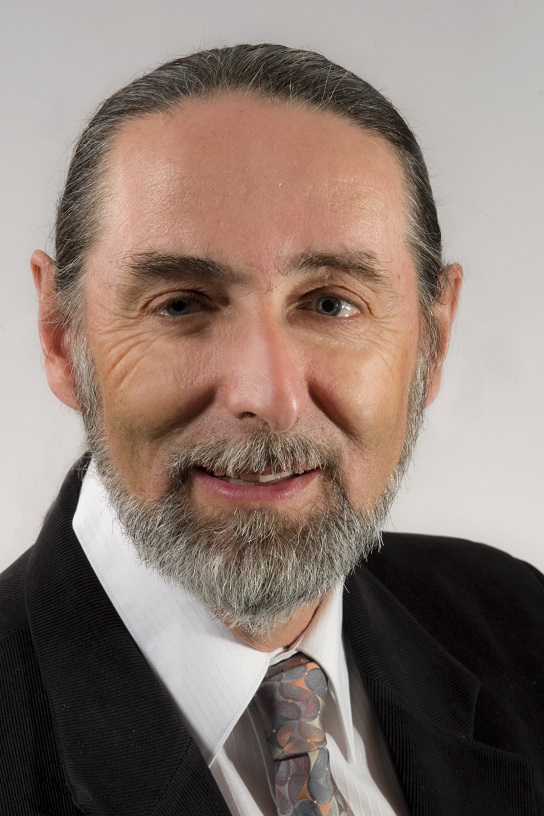
Prof. Grahame Holmes (IEEE Fellow)
RMIT University, Australia
Professor Holmes graduated from the
University of Melbourne with a B. Eng. in 1974. He has a
Master’s degree from the same university in power
systems engineering, and a PhD from Monash University in
power converter modulation theory. He was a faculty
member at Monash University for 26 years, where he
established the Power Electronics Research Group in 1996
to support graduate students and research engineers
working together on both pure and applied R&D projects.
The interests of the group include fundamental
modulation theory, VSI current regulators, active filter
systems, resonant converters, current source inverters,
and multilevel converters. In 2002 he formed a
commercial R&D company from this group, specialising in
the development of tailored power electronic conversion
systems for unusual applications. In 2010, Professor
Holmes was appointed as Innovation Professor – Smart
Energy Systems at RMIT University, where he is currently
extending his research interests to work with industry
and government in the area of Smart Grids and Smart
Energy technologies.Professor Holmes has been a major
contributor to the field of power electronics research
for nearly 30 years. His primary research focus has been
to investigate fundamental questions concerning the
principles of modulation and closed loop control of
switching power converters. He has published a major
theoretical reference book on this subject, together
with over 250 refereed journal and conference articles
(11000+ citations). He is a Fellow of the IEEE, reviews
papers for all major IEEE transactions in his area, and
has been an active member of the Industrial
Applications, Power Electronics Societies of the IEEE
for over 25 years.
Speech Title: Power Electronics and the
Emerging Smart Grid
Abstract: For most of the 20th century,
electrical energy has been generated by high power
rotating generators that supply customers through a
network of high voltage transmission lines and lower
voltage distribution feeders. However, as the world
moves inexorably towards Distributed Generation of
renewable electrical energy, present day power system
technologies are finding it harder and harder to meet
the requirements of this new paradigm. Their fundamental
limitations are clear – conventional generation assumes
the availability of large scale stored energy for a
small number of large generators, and energy is always
assumed to flow unidirectionally from generators to
consumers. Neither construct matches well with Smart
Grid concepts, and alternative operating approaches are
clearly required!
One foundational technology of
Distributed Generation is the Power Electronic
Converter, which can rapidly and flexibly control
electrical energy almost instantaneously on a moment by
moment basis. Since the 1950’s, PE converters have
become mainstream technology for industry, accurately
controlling rotating machines, precisely processing
energy with minimum energy wastage, and supporting a
myriad of other applications. More recently, as their
power handling capacity continues to increase, they are
becoming very attractive for distributed generation
systems where they can manipulate electrical energy in
ways that simply cannot be done using rotating machines.
The challenge at present is to decide exactly what we
want to do with this capability.
This presentation will explore why
power electronic converters are so flexible and
attractive for Distributed Generation systems. It will
firstly reflect on how the fundamental properties of
these systems make them so versatile, and then will
proceed to show how these properties particularly suit
Distributed Generation needs and requirements. Finally,
the current challenges of large scale usage of power
electronic converters in electrical grid systems will be
considered, looking at both technical challenges that
are still to be overcome, and the operational control
challenges that are still in the early stages of
development.
Keynote Speaker II
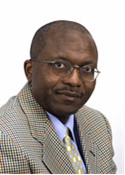
Prof. Innocent Kamwa (IEEE Fellow)
Hydro-Quebec Research Institute (IREQ), Canada
Innocent Kamwa obtained his B.S. and Ph.D.
degrees in Electrical Engineering from Laval University,
Québec City in 1985 and 1989 respectively. He has been
a research scientist and registered professional
engineer at Hydro-Quebec Research Institute since 1988,
specializing in system dynamics, power grid control and
electric machines. After leading System Automation and
Control R&D program for years he became Chief scientist
for smart grid, Head of Power System and Mathematics,
and Acting Scientific Director of IREQ in 2016. He
currently heads the Power Systems Simulation and
Evolution Division, overseeing the Hydro-Quebec Network
Simulation Centre known worldwide. An Adjunct professor
at Laval University and McGill University, Dr. Kamwa’s
Honors include four IEEE Power Engineering best paper
prize awards, three IEEE Power Engineering outstanding
working group awards, a 2013 IEEE Power Engineering
Society Distinguished Service Award, Fellow of IEEE in
2005 for “innovations in power grid control” and Fellow
of the Canadian Academy of Engineering. He is also the
2019 Recipient of the IEEE Charles Proteus Steinmetz
Award.
Speech Title:
Advanced Synchrophasors Data Analytics for
Control and Dynamic Stability Monitoring in Smart Grids
Abstract: The speaker discusses a comprehensive
framework for phasor analytics deemed necessary to
enable advanced wide-area control and monitoring
applications in smart grids. The key component in this
building is the smart PMU for control (PMU/C) which from
the substation can feed accurate fundamental and low
order harmonics phasors to the phasor data concentrator
at a higher than the standard rate of one point per
cycle. The second piece of the building is the dynamic
generator state estimation, which is mandatory to
enhance the observability of dynamic phenomena and thus,
improves control performance and protection
dependability. Following dynamic state estimation, a
combined time and frequency domain processing of
voltage, angle and frequency measurements based on
S-transform is proposed as a good mean for extracting
critical features which enable crisper information that
are more easily interpretable than the raw phasor
time-series. Gluing all the proposed pieces at both
substation and supervisory levels, it is possible to
build a smart Wide-Area Situational Awareness (WASA)
System, able to close the loop through educated and well
informed operators for handling GMD impacts on the grid
and/or through fast control and automation devices for
dealing with stability issues. The speaker illustrates
some salient features of the proposed WASA framework
drawing from smart grid applications recently developed
in the real-time simulation laboratory of Hydro-Quebec
Research Institute.
Keynote Speaker III
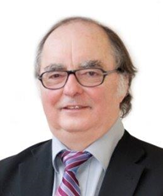
Mr.Jean Bélanger
President of OPAL-RT TECHNOLOGIES, Montreal,
Canada
Jean Bélanger is the
co-founder, CEO and CTO of OPAL-RT TECHNOLOGIES. Founded
in 1997, OPAL-RT develops and commercializes one of
fastest and most advanced digital real-time simulators
for system design and electronic controller testing.
Jean Bélanger received his Electrical Engineering degree
in 1971 at Laval University, in Quebec City, and his
Master’s degree from the École Polytechnique in
Montreal. Under his direction and technological
leadership, OPAL-RT has become a well-known developer of
state-of-the-art real-time simulators capable of
simulating all types of mechanical and electrical
systems, including the fastest power electronic
converters used in a wide range of industries - from
hybrid vehicles to entirely electrical-driven aircraft,
and from micro-grids to very large AC/DC power systems.
Jean Bélanger began his career at Hydro-Quebec’s System
Planning Division for the design of several aspects of
the James Bay 735-kV transmission systems. He also
worked at the IREQ where he contributed to the design
and construction of Hydro-Quebec real-time
simulators.Today, Jean Bélanger foresees that high-end
real-time simulators will soon be available to all
engineers, scientists and students by taking full
advantage of off-the-shelf PCs. This is the driving
challenge that Jean Bélanger and the OPAL-RT team have
taken as their primary goal.
Speech Title:
Power Systems Evolutions
and Challenges for Specialists, Utilities and Simulation
Tool Suppliers
Abstract: In the last
half-century, we have witnessed wholesale and essential
changes in the ways we structure and conceive of
generation, transmission and distribution systems.
• Generation systems have evolved from high-inertia,
schedulable, large rotating machines to low-inertia,
power-electronics-based, small and distributed non
schedulable renewable energy systems;
• Transmission systems have evolved from traditional AC
transmission circuits and local protection systems to
AC-DC transmission networks equipped with fast power
electronics controllers (FACTS). Sophisticated wide-area
protection and control schemes and communication systems
are both used to maximize security, and power transfer
capability to reduce rights-of-way;
• Distribution systems can no longer be represented by
simple passive and dynamic load equivalents. Distributed
energy generation and storage systems may now be
integrated anywhere on the grid, including at customer
sites. Each customer can potentially become a
de-centralized ‘prosumer’ of sorts, with photovoltaics
(PVs), batteries, and plug-in electrical vehicles.
Generation, transmission and distribution systems must
therefore be viewed as integrated and intelligent power
grids in which each subsystem can be operated
synchronously or asynchronously with the main grid—or,
alternately, as completely disconnected in case of
problems based on local control and protection systems.
This level of semi-autonomy and complexity will only
increase with the spread of automated energy exchange
contracts between consumers--and further, between
consumers and the main grids. New operational and
automated trading rules may also be required to help
broker increasingly vast numbers of energy transactions.
The involvement of several sytem operators will
undoubtedly also be required to help mediate these
challenges. As an unavoidable consequence of the above,
the sheer number of fast power electronics subsystems
interacting both between themselves and with the main
grids will then also increase dramatically. Voltage, as
well as frequency control and generator/load balancing,
will, in turn, also become exponentially more complex.
(These intelligent systems are usually installed by
third parties primarily concerned with the performance
of their systems operating in stand-alone mode, and not
so much about the interaction between other systems and
the grid(s). Additionally, it may not be assumed that
utilities are necessarily controlling the quality of the
dynamic models required to evaluate the behavior of
these systems under abnormal and fault conditions.
Consequently the impact on global grid performance and
security could end up becoming problematic.)
International standards committees are still working on
these challenges to ensure that control and energy
systems will eventually lead to reliable energy delivery
systems. This presentation will discuss the expected
flexibility and capability of simulation tools and
“digital twins” that will be required to cope with the
increasing complexity of our shared modern and evolving
intelligent distributed power grids.
Keynote Speaker IV
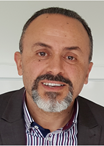
Prof. Mohamed El Hachemi Benbouzid
University of Brest, France
Mohamed Benbouzid received the B.Sc. degree in electrical
engineering from the University of Batna, Batna,
Algeria, in 1990, the M.Sc. and Ph.D.degrees in
electrical and computer engineering from the National
PolytechnicInstitute of Grenoble, Grenoble, France, in
1991 and 1994, respectively, and the Habilitation à
Diriger des Recherches degree from the University
ofPicardie “Jules Verne,” Amiens, France, in 2000. After
receiving the Ph.D. degree, he joined the Professional
Institute of Amiens, University of Picardie “Jules
Verne,” where he was an AssociateProfessor of electrical
and computer engineering. Since September 2004, he has
been with the Institut Universitaire de Technologie of
Brest, University of Brest, Brest, France, where he is a
Professor of electrical engineering. Prof.Benbouzid is
also a Distinguished Professor at the Shanghai Maritime
University, Shanghai, China. His main research interests
and experience includeanalysis, design, and control of
electric machines, variable-speed drives fortraction,
propulsion, and renewable energy applications, and fault
diagnosis ofelectric machines.Prof. Benbouzid is an IEEE
Senior Member. He is the Editor-in-Chief of the
International Journal on Energy Conversion(IRECON). He
is also an Associate Editor of the IEEE Transactions on
Energy Conversion, the IEEE Transactionson Industrial
Electronics, the IEEE Transactions on Sustainable
Energy, the IEEETransactions on Vehicular Technology. He
is a Subject Editor for the IET Renewable Power
Generation.
Speech Title: On Electric and Hybrid Vehicles
Optimal and Fault-Tolerant Control: Issues, Solutions,
and Recommendations
Abstract: In a world where environment protection
and energy conservation are growing concerns, the
development of electric and hybrid vehicles has taken on
an accelerated pace. Electricity is gaining more
importance in critical applications such as
transportation (with more electric aircraft, electric
ships, and electric vehicles), where continuity of
operation is crucial, and there is a growing demand for
safety, reliability, maintainability, and survivability.
However, several failures afflict electrical machines,
sensors, the wiring network (carrying power and/or
communication signals), and power converters. To ensure
the required levels of reliability and availability in
transportation, efficient methods for fault resilience
are mandatory. This has drawn significant research in
the design of resilient or fault-tolerant systems,
namely systems, which are designed to tolerate some
faults or able to promptly adapt the control law
(fault-tolerant control) in such a way as to preserve
pre-specified satisfactory performances in terms of
production quality, safety, etc. The need for these
resilient or fault-tolerant systems has inspired much
research for the particular case of electric machines
drives. The majority of these contributions have been
focused on faults in the machine or the drive components
while current trends include sensors and application
fault modes. High resilience can indeed be achieved with
robust or oversized systems but the industrial tendency,
in particular for transportation applications, which are
characterized by high survivability requirements such
naval systems, is to design fault-tolerant power
conversion systems. These systems include redundancy by
adopting specific machines and drive configurations such
as multiphase or multi-windings/multi-converters
systems. In this challenging context, this keynote aims
to present first the fault-tolerant control foundations:
Resilient control (also known as accommodation);
reconfiguration; and hardware and analytical redundancy.
It will be followed by a critical state of the art
review focused on electric and hybrid systems, from land
to naval propulsions, detailing the main issues and
proposing solutions and recommendations.
Keynote Speaker V
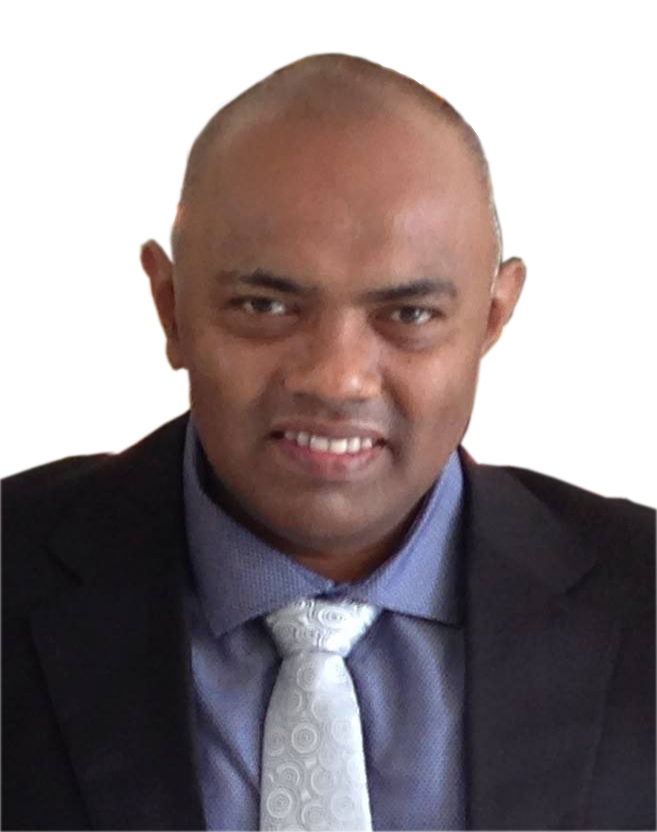
Prof. Tyrone Fernando
University of Western Australia
Tyrone Fernando obtained his bachelor
of engineering with honours and the degree of doctor of
philosophy from the University of Melbourne in 1990 and
1996 respectively. In 1996 he joined the University of
Western Australia, School of Electrical Electronic and
Computer Engineering where he is currently a Professor.
He was the Deputy Head of School in 2009 and 2010. His
research interests are in Power system dynamics,
renewable energy, functional observers, state
estimation, and control theory. He is currently an
Associate Editor for IEEE Transactions on Circuits and
Systems II and IEEE Access. He has served as an
Associate Editor for IEEE Transactions on Information
Technology in Biomedicine and also as guest editor for
the journal of Optimal Control Applications and Methods.
He has authored many journal and conference articles
and also two books in the areas of functional observers
and closed loop control of blood glucose in diabetics.
Professor Fernando is a senior member of IEEE.
Speech Title: Evolution of the Electric Grid
Abstract: The centralised power generation,
transmission and distribution electric grid that we
currently have is over 100 years old. With the
introduction of renewable energy for power generation
and incorporation of advance metering technologies,
latest control and communication techniques is
transforming the electric grid to a more advanced state
where consumers can participate in various ways to
provide services to enhance the reliability of the power
supply. This presentation will focus on the evolution of
the electric grid and consumer participation in
maintaining a stable power system through services such
as demand response.
Keynote Speaker VI
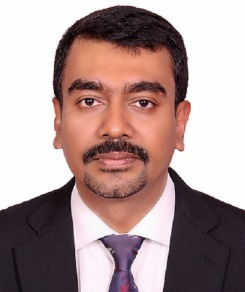
Prof. S. M. Muyeen
Curtin University, Australia
Dr. S. M. Muyeen received his B.Sc.
Eng. Degree from Rajshahi University of Engineering and
Technology (RUET), Bangladesh formerly known as Rajshahi
Institute of Technology, in 2000 and M. Eng. and Ph.D.
Degrees from Kitami Institute of Technology, Japan, in
2005 and 2008, respectively, all in Electrical and
Electronic Engineering. At the present, he is working as
an Associate Professor in the Electrical and Computer
Engineering Department at Curtin University, Perth,
Australia. His research interests are Renewable Energy,
Energy Storage System, Smart Grid, and Power System
Stability. He is the author/co-author of about 200
scientific articles including 80+ journals. He has also
authored/edited 6 Books as an author/editor in the area
of wind energy, electrical machines, and smart grid. He
is serving as Editor/Associate Editor for many
prestigious Journals from IEEE, IET, and other
publishers, e.g., IEEE Transactions of Sustainable
Energy, IEEE Power Engineering Letters, and IET
Generation, Transmission & Distribution, etc. He is the
subject editor for IET Renewable Power Generation and
also served as the Guest Editor-in-Chief/Leading Guest
Editor/Guest Editor for special issues from IET
Generations, Transmissions, and Distribution, Applied
Sciences, and International Journal of Electrical Power
& Energy Systems. He was the recipient of many
prestigious awards including the Petroleum Institute
Research/Scholarship Award 2012, which was the only
research award for the entire university until 2013. He
has received many best paper prizes from IEEE
Conferences and also the recipient of IEEE Outstanding
WA Engineer Award 2017 jointly from PES and PELS
societies. He has secured many national and
international research grants and have massive
experience in developing research infrastructures for
universities and research centers. Dr. Muyeen has given
many Keynote and Invited speeches to International
Conferences and renowned universities. Dr. Muyeen is the
Senior Member of IEEE and Fellow of Engineers Australia
(FIEAust).
Speech Title:
ICT enabled Wide Area Control for Smart Grid
Abstract: The power and energy sector is going
through a fast transformation as energy sustainability,
efficiency, reliability and environmental concerns are
becoming major concerns in the twenty-first century.
Distributed Generations are now emerging as standard
features of today’s complex power system. The
interconnection of small scale modular generating units
like PV, wind turbine, photovoltaic system,
micro-turbine, fuel cells, and energy storage systems
like battery, flywheel, supercapacitor, superconducting
magnetic energy storage to the low voltage distribution
network in ac, dc or hybrid form leads to a new energy
system paradigm, known as Micro-grid. With the blessings
of modern Information and Communication Technologies
(ICT), Micro-grid is further going through another
transformation, known as Smart grid. This talk presents
ICT applications in smart grid focusing more in Wide
Area Control (WAC) system to augment stability and
reliability of traditional power system.
















